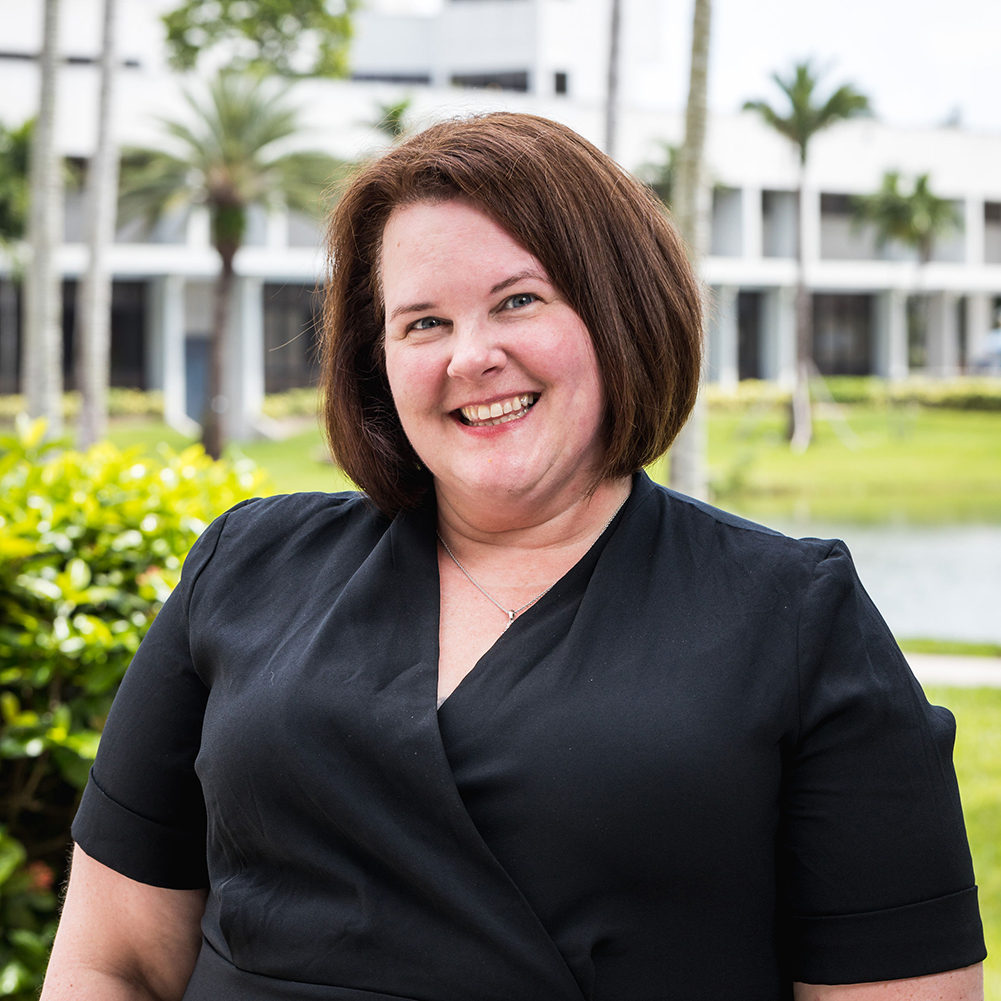
Amy Huseby
Associate Teaching Professor
English
Office: AC1 354, DM 467A
Phone: 305-348-2874
Email: ahuseby@fiu.edu
Dr. Huseby received her M.A. and Ph.D. in English Language and Literature from the
University of Wisconsin-Madison in 2012 and 2017, respectively. She regularly teaches
popular upper- and lower-divison courses in the major on British literature of the long
nineteenth century, such as '19th-Century Women Write the Empire,' 'Sex and the City, a
survey of British literature 1750-Present,' ‘The Gothic: Development to Present,’ 'Alias
Victorian: Doubles, Doppelgängers, and Twins,’ ‘Suffragettes, Bluestockings, and Inverts:
The New Woman Novel,’ ‘Victorian Poetry,’ and ‘Adaptations of Austen and the Brontës.’ In
addition, Dr. Huseby is a Fellow in the Honors College, where she teaches courses on
climate change literature and gender and sexuality.
Dr. Huseby chairs the Literature Gateway Curriculum Committee and is the English
department Media Director. She’s been a member of the editing team of
Victoriographies (Edinburgh University Press) since 2012, and in Fall 2021 assumed the
role of Editor-in-Chief, which she shares with her UK counterpart Beth Palmer (Surrey). Dr.
Huseby also mentors FIU’s EMBRACE program students and high school instructors in
Broward and Miami-Dade Counties for FIU’s Dual Enrollment Program, and was the
inaugural Caucus Representative and Organizer for the Victorian Poetry Caucus of the
North American Victorian Studies Association (NAVSA).
Teaching Philosophy
‘Ultimately, I understand teaching as a conversation in which the teacher learns as much as
the student. With each encounter, I ask myself how I might have tailored my instruction
more effectively, what each student needs to succeed with their learning goals, and how I
can best construct our classroom interactions to better tune in to their thinking and
personal educational aims. I recognize that I am one among many learners in each
classroom interaction. Far from ceding my expertise or authority as the instructor in a
classroom, this pedagogical position reinforces my ethos as a trustworthy guide and
capable coach through subject matter that many students approach with trepidation.
Learners in and out of my classroom, in office hours, mentoring meetings, and even casual
encounters on campus, teach me daily through their prior knowledges and lived
experience, and I return the favor. Each time I tune into them, and they to me, my teaching
becomes stronger, their learning is reinforced, and we mutually contribute to our
classroom’s democratic environment.’
Research Areas
Dr. Huseby’s research explores the relationship between British literature of the long
nineteenth century and the representational capacity of numbers, with particular attention
to questions of gender and sexuality, imperialism, political economy, the history of science,
and the emerging social sciences. Her dissertation, Quantified Lives: Nineteenth-Century
British Poetry and the Mathematics of Social Totality, examines how nineteenth-century
women poets set out to trouble contradictory models of social counting. Quantified Lives
developed an account of social numeracy by which poets deployed the continuities and
discontinuities enabled by poetic forms, such as rhyme, meter, and tropes, to work through
ideas about singularities and pluralities, intimacy and individuation. Articles based on each
chapter of Dr. Huseby’s dissertation project have been published in Victorian Poetry,
Women’s Writing, the edited collection Love Among the Poets (Ohio UP), and elsewhere.
With Dr. Heather Bozant Witcher (Auburn University), Dr. Huseby is editor of Defining Pre-
Raphaelite Poetics (Palgrave Macmillan, November 2020). The collection broadens the
scope of Pre-Raphaelite literary scholarship by codifying the methods, forms, and
commonalities identifiable as Pre-Raphaelite poetics, by which we intend acts of making
broadly construed. Dr. Huseby’s scholarly work has also been published or is forthcoming
from Nineteenth-Century Literature, Victorian Poetry, Victorian Periodicals Review, Women’s
Writing, Nineteenth-Century Gender Studies, and South Atlantic Review, among others. She is
currently at work on the Cambridge History of Victorian Women’s Writing with Carolyn
Dever (Dartmouth), which is under contract with Cambridge UP.